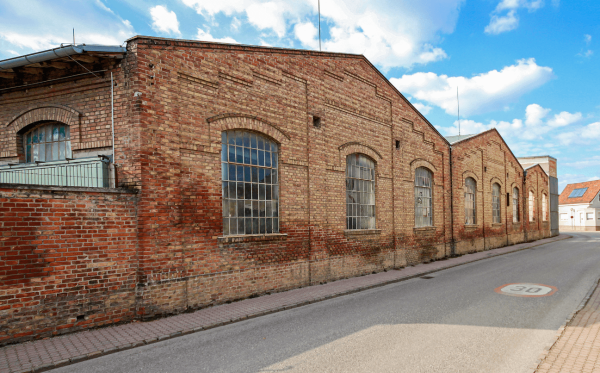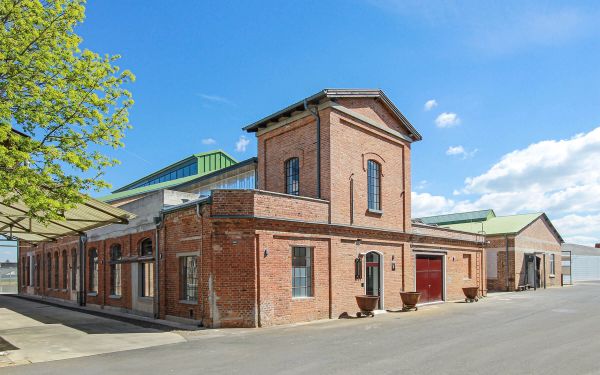ResourceRevival - District development from industry site to resource neutrality in Möllersdorf
Short Description
Starting point/motivation
The "ResourceRevival" exploratory project aims to transform the former industrial site in Möllersdorf into a resource-neutral district. In light of the pressing challenges of climate change and resource scarcity, the project sets new standards for sustainable district development. The motivation is based on European and national climate targets and the need to strengthen the integration of the construction sector into circular economy and climate protection strategies.
Contents and goals
The project aims to create a modern, future-proof district that takes the concept of climate neutrality a step further and reduces the import and export of resources to a minimum. This is to be achieved by maximizing the reuse and recycling of existing building materials, rainwater and greywater and by making full use of locally available renewable energies. The innovative approach lies in the exploration of existing synergies between material use, rainwater management and energy supply in order to realize a holistic sustainability strategy.
Methods
The development of the integrated concept of "resource neutrality" involves determining the supply and demand for resources under varying utilization scenarios, carrying out a pre-demolition audit as well as creating a social urban mining concept. The existing materials are identified, evaluated and inventoried, and alternatives to demolition are also identified and their refurbishment prioritized.
Feasibility studies, including the investigation of the technical suitability and ecological integrity of the use of demolition materials in nature-based solutions, will explore a new area of application for secondary raw materials, create a market for regional products and promote a circular economy in Austria.
Expected results
Quantifying the economic and ecological added value of resource-optimized planning with the help of life cycle cost analyses and life cycle assessments provides a sound basis for decision-making.
The provision of tender text modules in the form of quality criteria for dismantlable constructions will enable dissemination and implementation.
The results of the Werk Möllersdorf serve as a basis for future projects and make a significant contribution to the promotion of resource efficiency and sustainability at district level.
Project Partners
Project management
e7 GmbH
Project or cooperationspartners
- Kallinger Beteiligungs GmbH
- grünplan GmbH
- BauKarussell e.Gen.
- GrünStattGrau Forschungs- und Innovations GmbH
Contact Address
e7 GmbH
Alessa Klie, BSc
Hasengasse 12/2
A-1100 Vienna
Tel.: +43 (670) 650 38 24
E-mail: alessa.klie@e-sieben.at
Web: www.e-sieben.at


